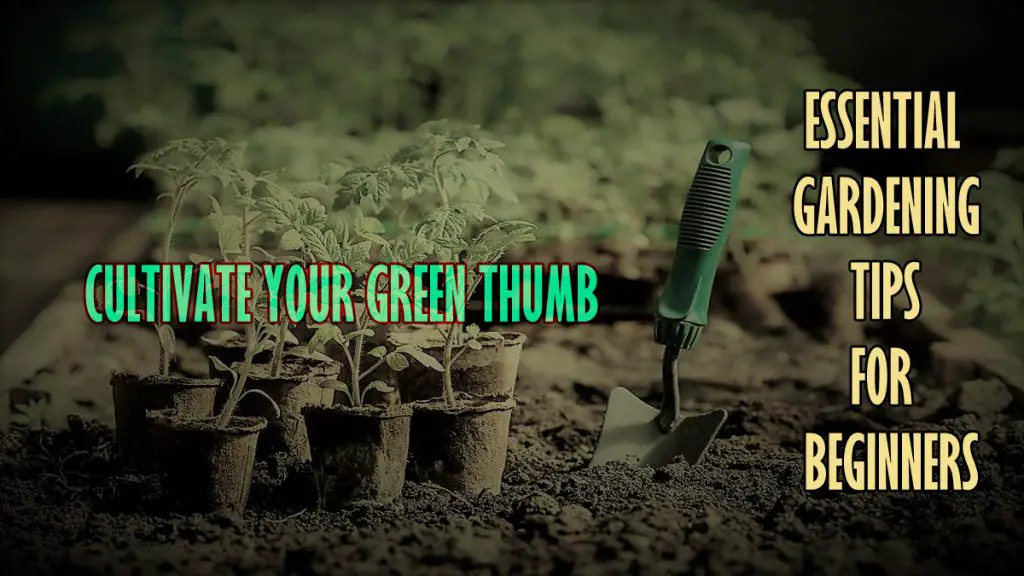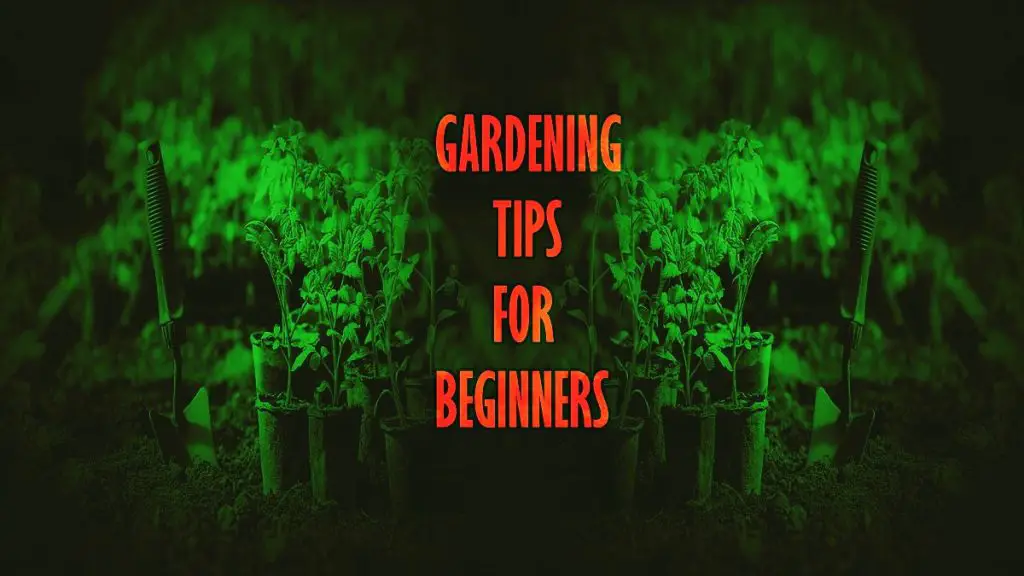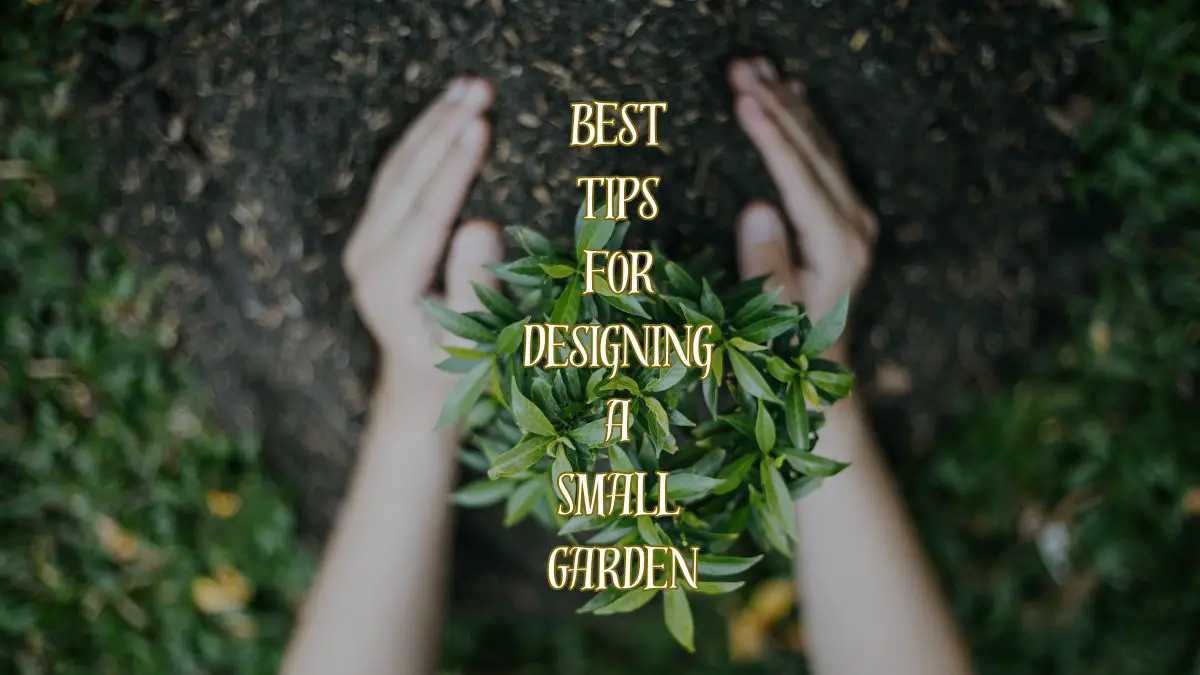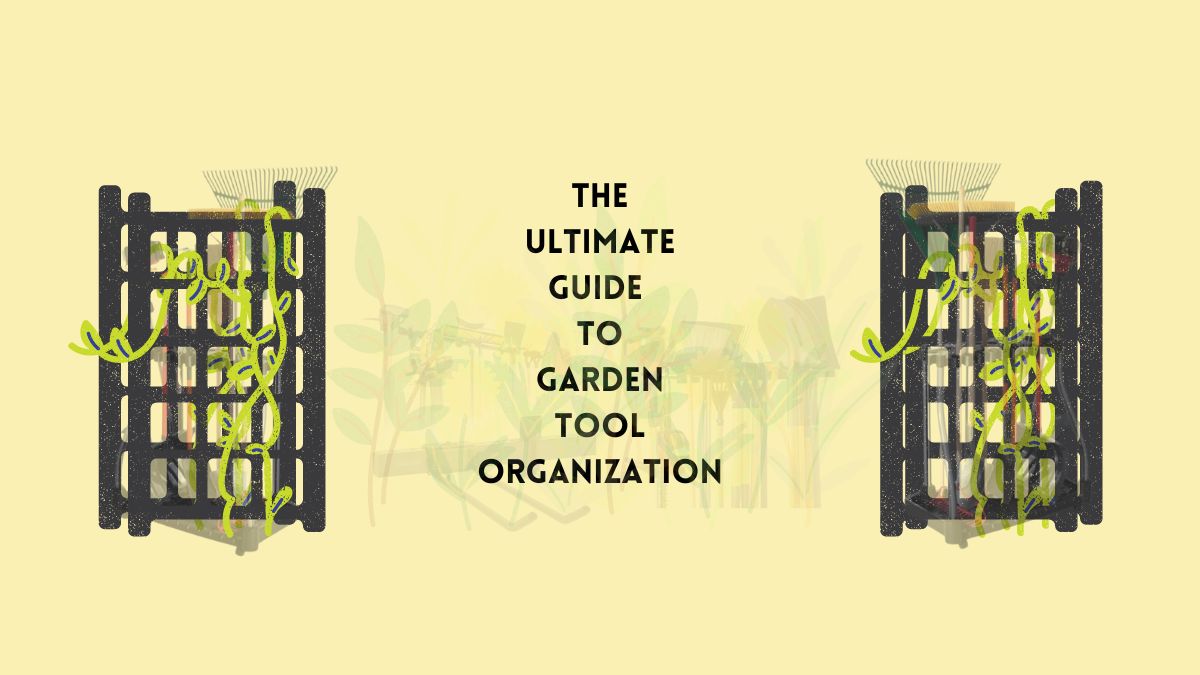Having never gardened before? No worries, this is for you. You can get the information you need right here. It’s all about basic gardening tips for beginners who want to be enthusiastic gardeners. With the help of these simple but effective guidelines, you can realize your grow-your-own aspirations and make it great within a short time.
Gardening is a wonderful hobby that allows you to connect with nature, beautify your surroundings, and grow your own fresh produce. If you’re new to gardening, it can seem a bit daunting at first. However, with the right guidance and a willingness to learn, anyone can become a successful gardener. In this article, we will share some essential gardening tips for beginners to help you get started on your gardening journey.
Related Article: 14 Basic Tips For Designing A Small Garden
You may also read: A Comprehensive Guide to Garden Pest Control Makes Garden Beautiful

Related Article: The Ultimate Guide to Garden Tool Organization: Maximize Efficiency
You may also read: The Ultimate Guide to Organic Gardening
Basic Gardening Tips For Beginners
Now, we will talk about the basic gardening tips for beginners which would be great guidance and effective rules to follow for beginner gardeners.
1. Start with a Small Garden
It’s best to start small when starting a garden. Select a location that receives sufficient sunshine and is convenient for routine maintenance. Starting relatively small enables you to concentrate your efforts and attention, minimizing overwhelm and improving the success of caring for your plants.
There are a lot of benefits to starting a small garden first. It helps you to manage your tasks conveniently and you also get a clear idea to nurture it properly in time. As a beginner, you have to start small with modesty and grow it gradually with time.
2. Understand Your Growing Zone
Every region has a specific climate and growing zone, which determines what plants are best suited for your area. Knowing your growing zone will help you select plants that thrive in your specific conditions. You can find your growing zone by referring to the USDA Plant Hardiness Zone Map or consulting local gardening experts.
It is a very important and preliminary task to start gardening. It helps you to realize the gardening process according to your zone and also your task process as well. So you have to research in detail about your growing zone before starting your gardening journey. It will give the best leverage and proper benefits for your gardening tasks.
3. Prepare the Soil
Preparing the soil properly is another basic task that determines your gardening success. You have to keep in mind always that patience is very important to prepare the soil as well as work through gardening. When you make your soil properly, that means it will be a solid foundation for your gardening.
Healthy soil is the basis for healthy plants. Make sure your soil is well-draining and supplemented with organic matter before planting. To increase the soil’s fertility, remove weeds, rocks, and debris and add aged manure or compost. Regularly checking your soil’s pH level can also give you important information about the nutrients it contains and assist you in making the appropriate adjustments.
4. Select the Right Plants
Selecting the right plants are also vital issues for gardening properly and it would be a great starter for your introducing growing experience. If you can choose the proper plants according to your growing zone, the whole task would be easier. And it will give you a little bit of confidence that will be a great experience for your upcoming gardening.
Therefore, choose those plants that will thrive in your growing conditions, available space, and gardening experience. Beginners should start with simple-to-grow plants like lettuce, radishes, tomatoes, and herbs. These plants are tolerant and yield results quite quickly, which will increase your gardening self-assurance.
5. Provide Adequate Water
Water is a life-saving factor for plants that helps them to grow up properly as well. If you are a true passionate gardener you have to take care of watering the garden properly. Moreover, you should know which plant needs how much water to survive and grow up.
The health and development of your plants depend on water. Remember that each plant has different water needs, so pay attention to these. In general, it is preferable to water deeply and less frequently to promote deeper root growth. To lower the danger of infections, water early in the day and let the leaves dry out during the day.
6. Mulch and Weed Regularly
Weeds are the real enemy of plants and they can create a bad impact on plants. Most importantly, weeds are growing regularly without any break and it would be dangerous for the natural growth of your garden.
Weeds compete with your plants for nutrients and water, so keeping them under control is critical. Inspect your garden regularly and pull away weeds as soon as you notice them. Mulching your garden beds with organic materials such as straw, wood chips, or shredded leaves aids in weed suppression, moisture retention, and soil temperature regulation.
7. Monitor and Control Pests
Pests can be a common challenge in gardening, but it’s important not to panic. Identify common pests in your area and take preventive measures to protect your plants. Regularly inspect your plants for signs of damage, and if necessary, employ organic pest control methods such as companion planting, introducing beneficial insects, or using natural pest repellents.
As a gardener, you have to keep in mind the pests that can be a devastating effect on your garden. So you have to monitor always and nurture your plants with care. Indeed, you should take the necessary precautions and apply it timely.
8. Learn About Plant Care
Learning and research are very important for plant care when you start gardening seriously. You have to learn regularly about your plant and its process of nurturing. Sometimes you will get the adequate information easily but sometimes it takes time and effort.
Educate yourself about the specific care needs of your plants. Understand their sunlight requirements, pruning techniques, fertilization schedules, and any other specific instructions. Many plants have different growth stages and pruning requirements, so knowing how to care for them properly will enhance their overall health and productivity.
9. Embrace Patience and Learn from Mistakes
Patience is mandatory for being a gardener and you have to carry it through the whole gardening time. As a garden enthusiast, everyone should continue gardening with full of patience and integrity. Gardening is a continuous process where you also have to carry the mentality of learning from mistakes.
Making mistakes is common when gardening because it’s a never-ending learning process. If any of your plants don’t do well or if you run into difficulties, try not to get discouraged. Accept patience and see any failures as an opportunity to grow. You’ll learn more about the requirements of your garden as well as what works best over time.
10. Enjoy the Journey
Indeed, gardening is a long journey full of joy and refreshments. This is a healthy journey both for health and mind and it gives an amazing opportunity to utilize your time properly. When you nurture the plants in your garden, it will give you an inner peace that refreshes you.
Gardening is not just about the result; it’s also about the joy of nurturing plants and being in touch with nature. Take the time to appreciate the beauty of your garden, relax in its peacefulness, and celebrate your successes, no matter how small. Gardening is a rewarding experience that offers relaxation, stress relief, and a sense of accomplishment.
To know more about gardening, Go Here >>>
Related Article: The 9 Best Garden Tool Organizers of Recent Times
Related Article: The Top 10 Best Pruning Saws for Gardeners
You may also read: Indoor Plant Care Tips for Enthusiasts: Lush Oasis Secrets
Conclusion
Embarking on a gardening journey as a beginner can be both exciting and challenging. By following these essential gardening tips for beginners, you’ll be equipped with the knowledge and confidence to cultivate a thriving garden. Remember to start small, understand your growing conditions, prepare the soil, select appropriate plants, provide adequate care, and learn from your experiences. Gardening is a lifelong learning process, and each season will bring new opportunities to grow as a gardener. Enjoy the process, and soon you’ll reap the bountiful rewards of your efforts.
Related Article: The 11 Best Gardening Tool Sets of Recent Times
Related Article: The Top 10 Common Gardening Mistakes You Should Avoid
You may also read: Bonsai For Beginners: How To Grow Bonsai Tree




Amazing. Love to be with your writing. Carry on.
Thanks. Stay with us.
Pingback: The Art Of Bonsai - Dwell Gardens
Pingback: The Art of Garden Tool Organization: A Prerequisite for Green-Thumbed Success - Dwell Gardens
Pingback: 14 Basic Tips For Designing A Small Garden - Dwell Gardens
Pingback: The 11 Best Gardening Tool Sets of Recent Times - Dwell Gardens
Pingback: A Comprehensive Guide to Garden Pest Control Makes Garden Beautiful - Dwell Gardens
Pingback: The 9 Best Garden Tool Organizers of Recent Times - Dwell Gardens
Pingback: The Art of Chaos Gardening: A Unique Approach Gardening - Dwell Gardens
Pingback: The Top 10 Common Gardening Mistakes You Should Avoid - Dwell Gardens